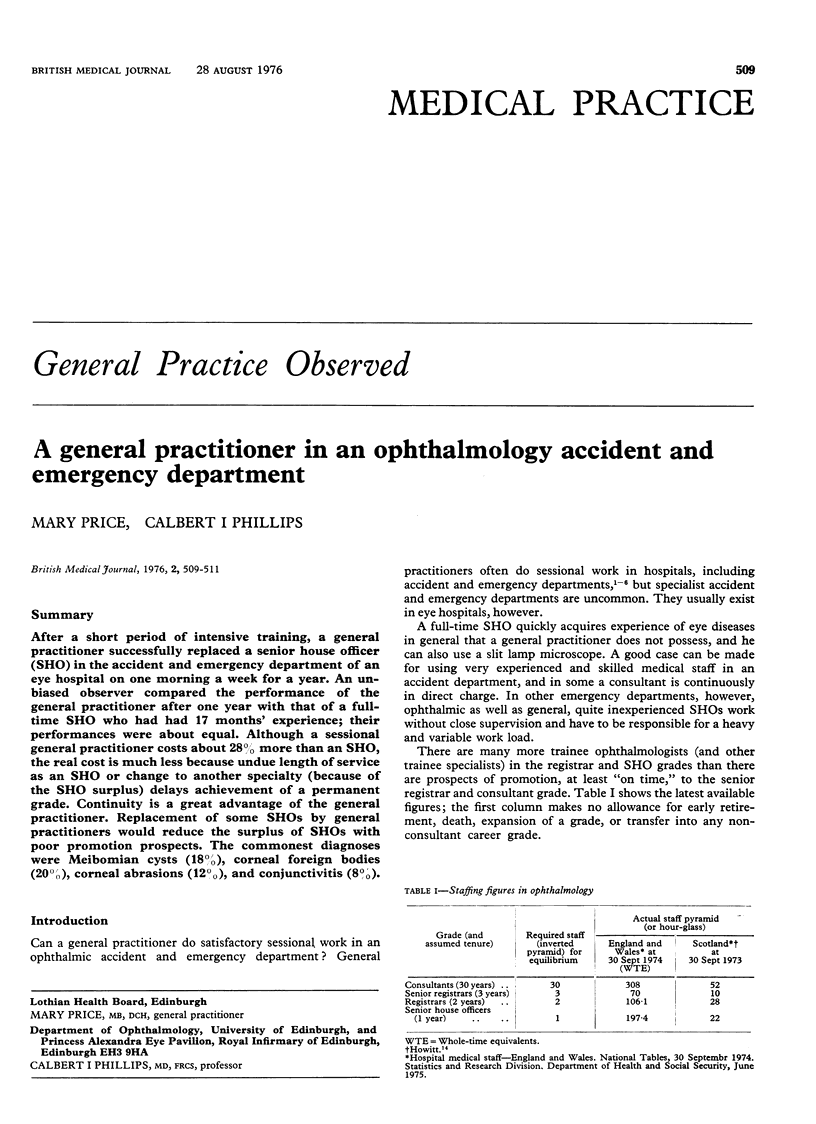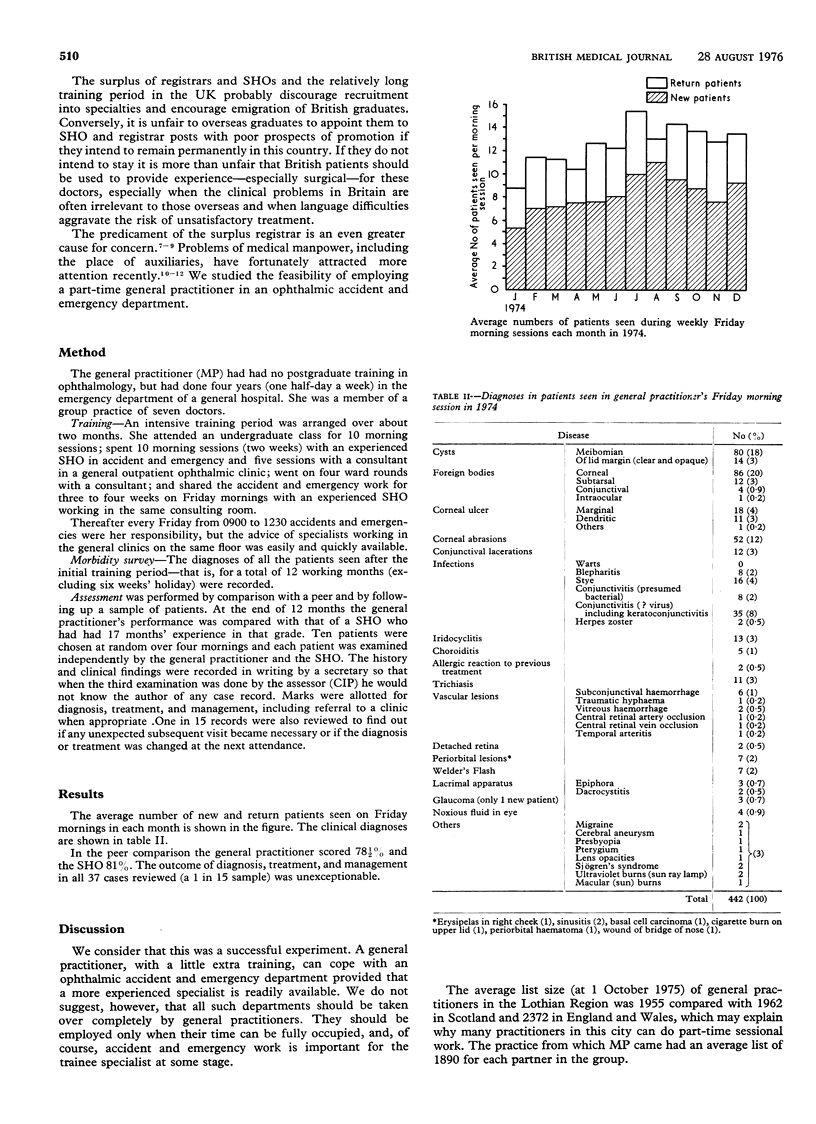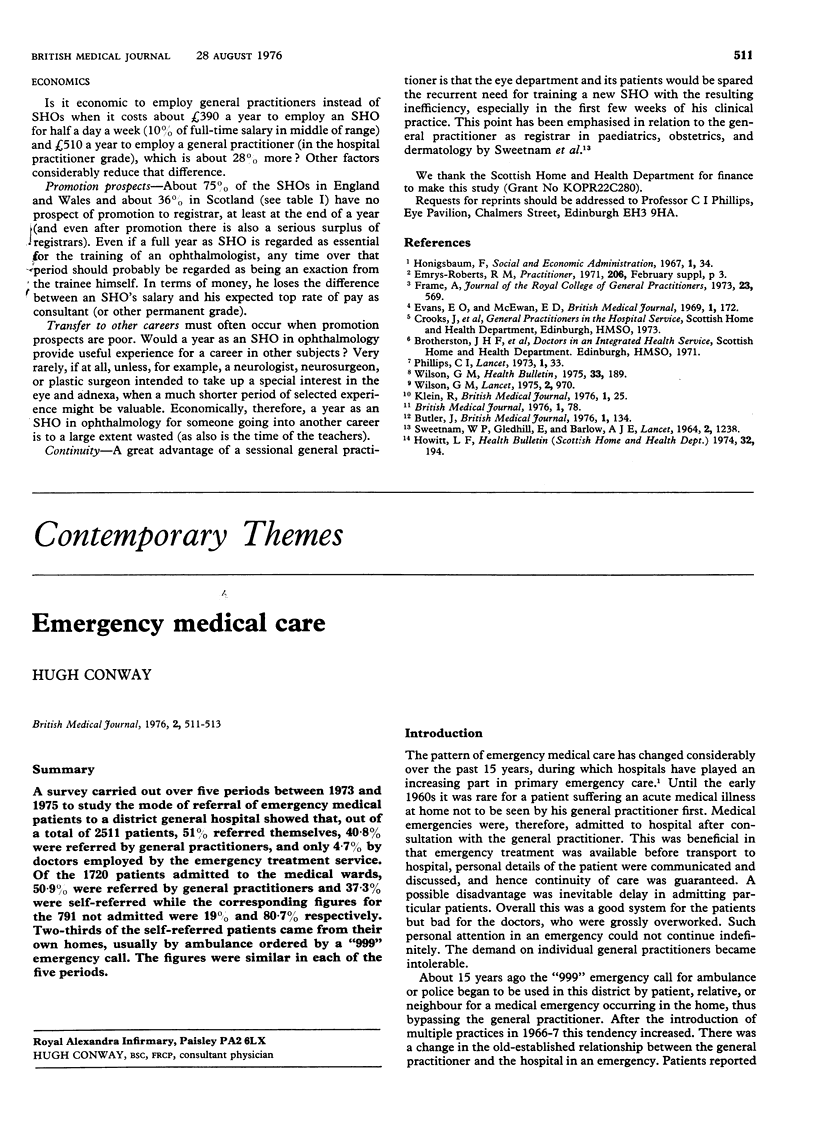Abstract
After a short period of intensive training, a general practitioner successfully replaced a senior house officer (SHO) in the accident and emergency department of an eye hospital on one morning a week for a year. An unbiased observer compared the performance of the general practitioner after one year with that of a full-time SHO who had had 17 months' experience; their performances were about equal. Although a sessional general practitioner costs about 28% more than an SHO, the real cost is much less because undue length of service as an SHO or change to another specialty (because of the SHO surplus) delays achievement of a permanent grade. Continuity is a great advantage of the general practitioner. Replacement of some SHOs by general practitioners would reduce the surplus of SHOs with poor promotion prospects. The commonest diagnoses were Meibomian cysts (18%), corneal foreign bodies (20%), corneal abrasions (12%), and conjunctivitis (8%).
Full text
PDF


Selected References
These references are in PubMed. This may not be the complete list of references from this article.
- Evans E. O., McEwan E. D. Future role of the general practitioner in the hospital service. Br Med J. 1969 Jan 18;1(5637):172–173. doi: 10.1136/bmj.1.5637.172. [DOI] [PMC free article] [PubMed] [Google Scholar]
- Mowat N. A., Brunt P. W., Albert-Recht F., Walker W. Outbreak of serum hepatitis associated with tattooing. Lancet. 1973 Jan 6;1(7793):33–34. doi: 10.1016/s0140-6736(73)91239-7. [DOI] [PubMed] [Google Scholar]
- SWEETNAM W. P., GLEDHILL E., BARLOW A. J. THE GENERAL PRACTITIONER AS REGISTRAR. Lancet. 1964 Dec 5;2(7371):1238–1239. doi: 10.1016/s0140-6736(64)91069-4. [DOI] [PubMed] [Google Scholar]
- Wilson G. M. General professional training in medicine. Lancet. 1975 Nov 15;2(7942):970–972. doi: 10.1016/s0140-6736(75)90377-3. [DOI] [PubMed] [Google Scholar]
- Wilson G. M. Medical registrars in no man's land. Health Bull (Edinb) 1975 Sep;33(5):189–190. [PubMed] [Google Scholar]


